ESTUDIOS
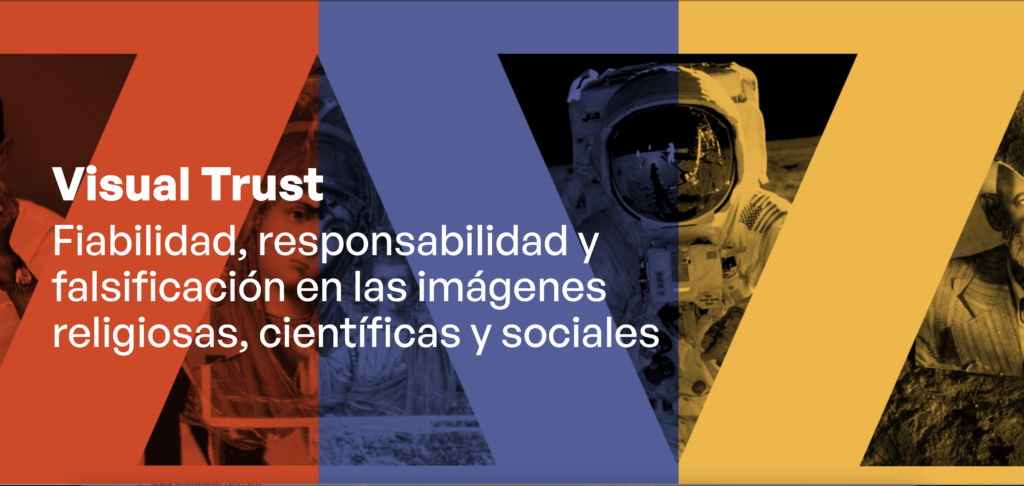
Visual Trust. Fiabilidad, responsabilidad y falsificación en las imágenes religiosas, científicas y sociales
“VISUAL TRUST es un proyecto multidisciplinar, comparativo e innovador destinado a desarrollar una teoría general de la (des)confianza en las imágenes en el mundo contemporáneo”. financiado por el Consejo Europeo de Investigación. (cita)
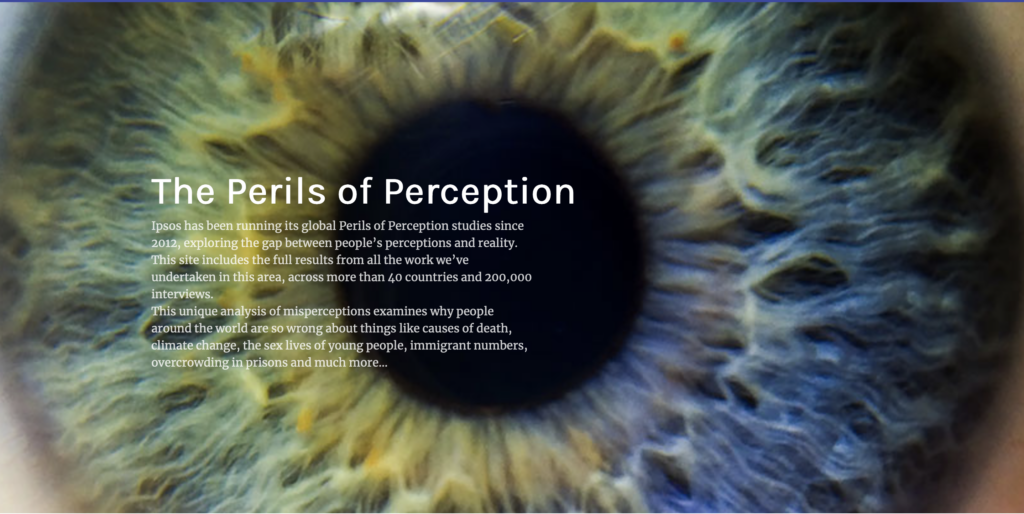
The perils of perception
“Ipsos has been running its global Perils of Perception studies since 2012, exploring the gap between people’s perceptions and reality. This site includes the full results from all the work we’ve undertaken in this area, across more than 40 countries and 200,000 interviews.
This unique analysis of misperceptions examines why people around the world are so wrong about things like causes of death, climate change, the sex lives of young people, immigrant numbers, overcrowding in prisons and much more…” (cita)
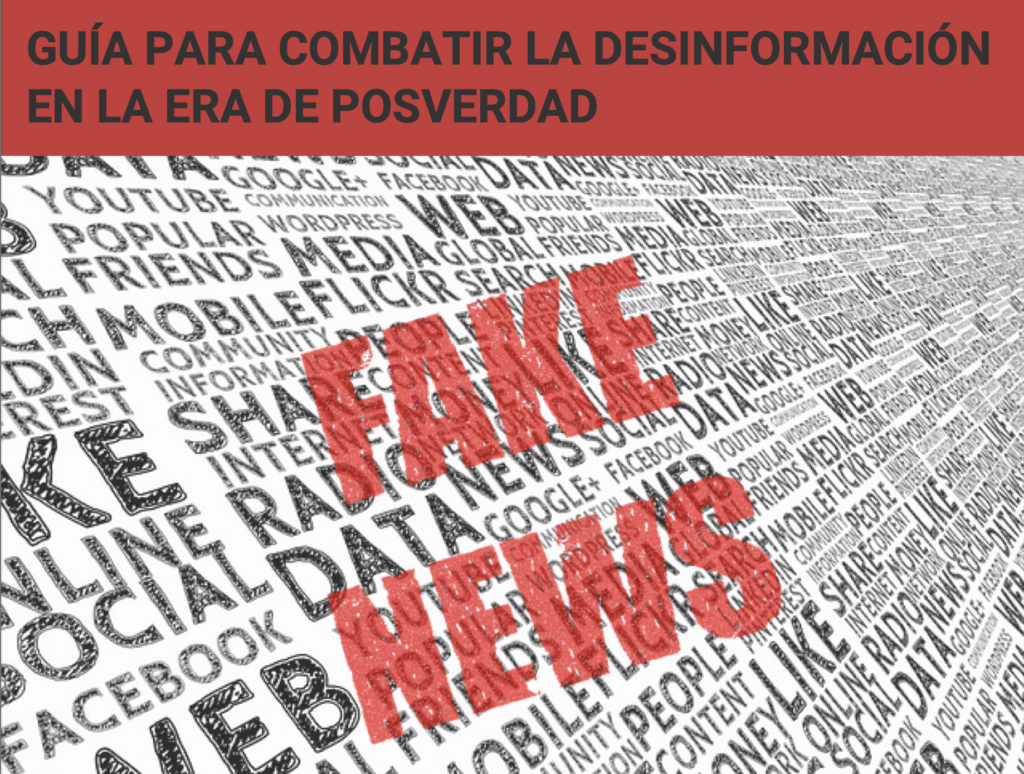
¿Qué son las fake news? Guía para combatir la desinformación en la era de la posverdad
“La Federación Internacional de Periodistas (FIP), organización que representa a 600.000 comunicadores y comunicadoras en todo el mundo, elaboró [2018] una publicación que tiene como fin esclarecer y visibilizar el fenómeno de las Fake News, a modo de guía para periodistas y para la sociedad en general para identificar las noticias falsas, evitar su reproducción y desmentirlas”. (cita)
INFORMES
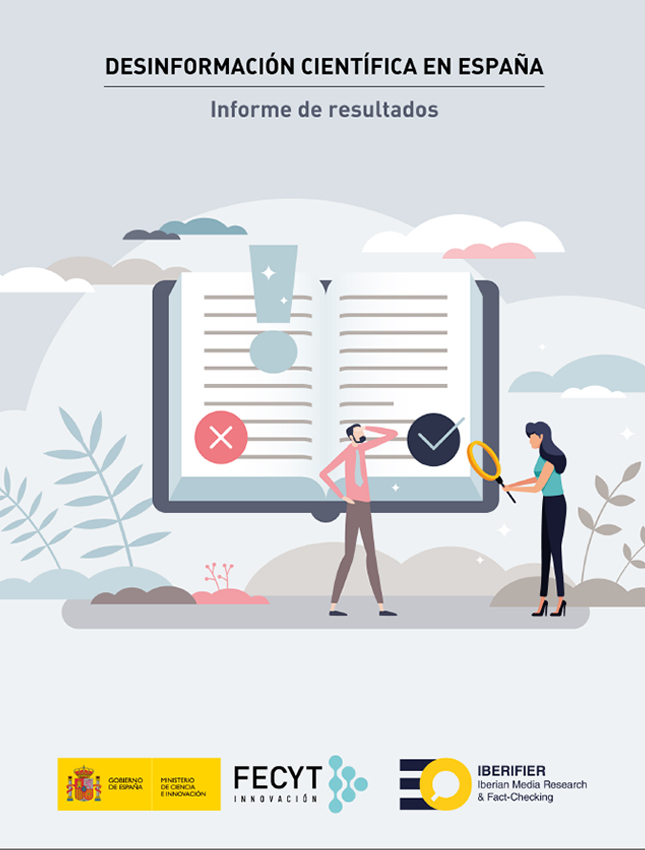
Desinformación científica en España (Informe de resultados)
“El estudio analiza aspectos tales como los hábitos de consumo de información científica, la confianza en los diferentes medios, la actitud hacia la desinformación y los factores relacionados con la capacidad de identificar y propagar la desinformación científica.
En total se han realizado 2.100 entrevistas telefónicas a una muestra de personas mayores de 15 años residentes en España. Este estudio ha sido elaborado por Celia Díaz Catalán, profesora de Sociología de la Universidad Complutense de Madrid y Pablo Cabrera Álvarez, investigador en el Institute for Social and Economic Research de la Universidad de Essex (Reino Unido).
El informe ha sido desarrollado en el marco del proyecto IBERIFIER, el observatorio de medios digitales de España y Portugal, en el que la Fundación Española para la Ciencia y la Tecnología (FECYT), como organización de interfaz entre la ciencia y la sociedad, se ha involucrado para conocer los factores que subyacen a la desinformación científica en España”. (Cita)
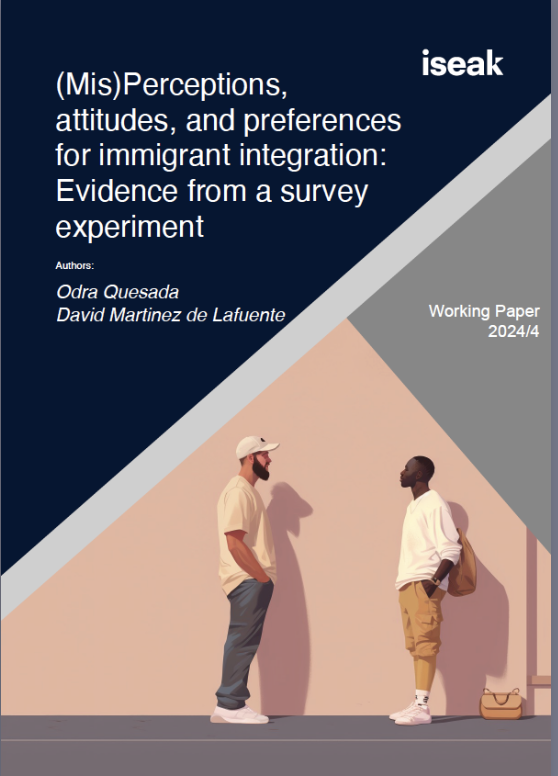
(Mis)Perceptions, attitudes, and preferences for inmigrant integration: Evidence from a survey experiment
Working paper basado en el estudio AEARCTR-0012642, cofinanciado por el Departamento de Empleo e Inclusión Social de la Diputación Foral de Bizkaia en 2023 y basado en datos de una encuesta adminstrada a nivel nacional (3200 personas, aproximadamente)..
Referencia: Quesada, O., & Martínez, D. (2024). (Mis)Perceptions, attitudes, and preferences for immigrant integration: Evidence from a survey experiment. Bilbao: Fundación ISEAK. Enlace.
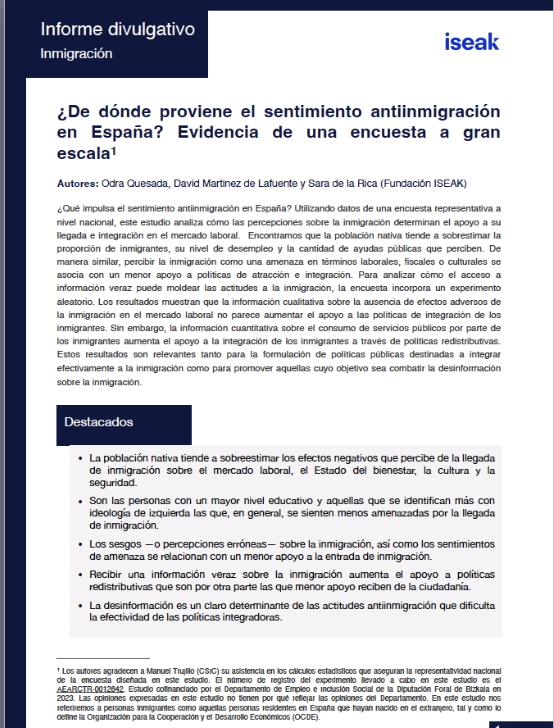
¿De dónde proviene el sentimiento antiinmigración en España? Evidencia de una encuesta a gran escala
Informe divulgativo del estudio AEARCTR-0012642.
Referencia: Quesada, O., Martínez, D., & de la Rica, S. (2024). ¿De dónde proviene el sentimiento antiinmigración en España? Evidencia de una encuesta a gran escala. Bilbao: Iseak. Enlace.
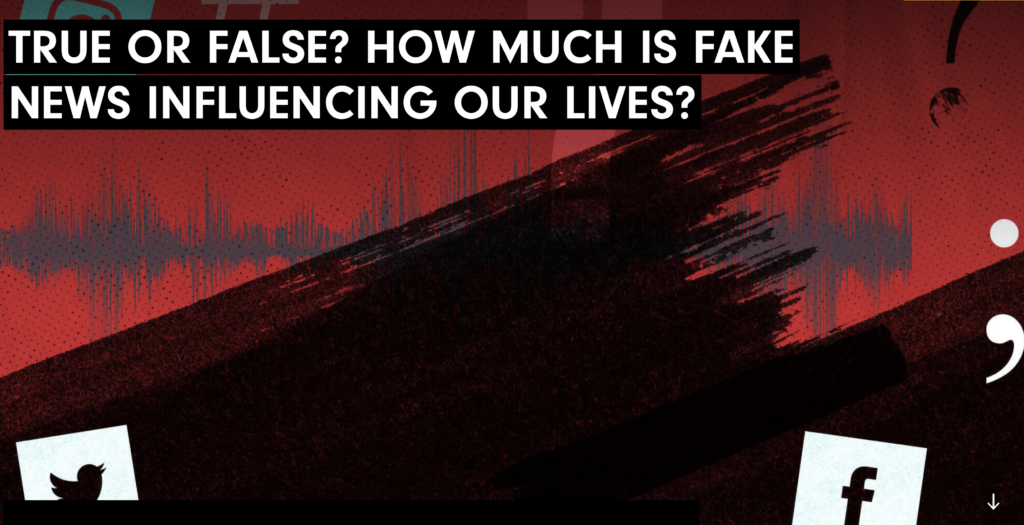
True or False? How much is Fake News influencing our lives?
“Is it real or fake? Around 45% of adults in the UK believe they encounter fake news every day. With a decrease in adults accessing news updates through their TVs and the use of social media for news on the rise, according to an Ofcom study, fake news has gathered momentum over the years. But what influence has fake news already had on the general public and what risk does it pose?” (cita)
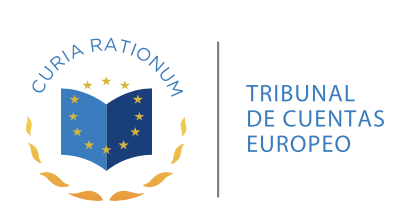
Informe especial: El impacto de la desinformación en la UE
“La desinformación es una cuestión muy preocupante en las sociedades organizadas. Las redes sociales y las nuevas tecnologías han aumentado la escala y la velocidad a la que la información falsa o engañosa puede llegar a sus destinatarios y otros públicos. […] Recomendamos aumentar la participación de los Estados miembros en el sistema de alerta rápida y mejorar la vigilancia y la rendición de cuentas de las plataformas en línea. También señalamos la necesidad de contar con una estrategia de alfabetización mediática a escala de la UE que incluya la lucha contra la desinformación y la adopción de medidas para asegurar que el Observatorio Europeo de Medios Digitales cumpla sus ambiciosos objetivos.
Informe Especial del Tribunal de Cuentas Europeo con arreglo al artículo 287, apartado 4, segundo párrafo, del TFUE. (Cita).
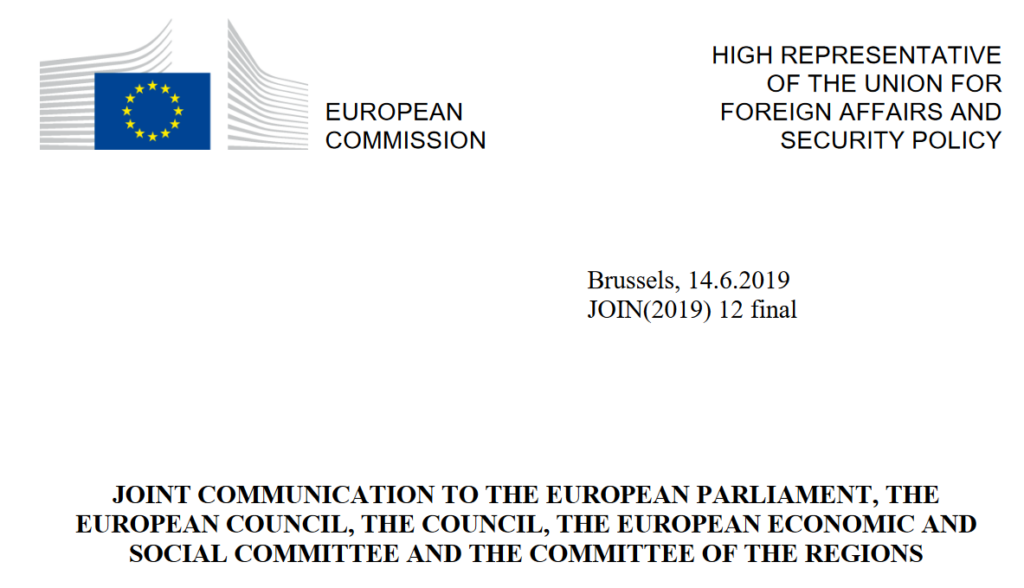
EU Report on the implementation of the Action Plan Against Disinformation
Joint communication to the European Parliament, the European Council, the council, the European Economic and Social Committee and the Committee of the Regions (Report on the implementation of the Action Plan Against Disinformation)
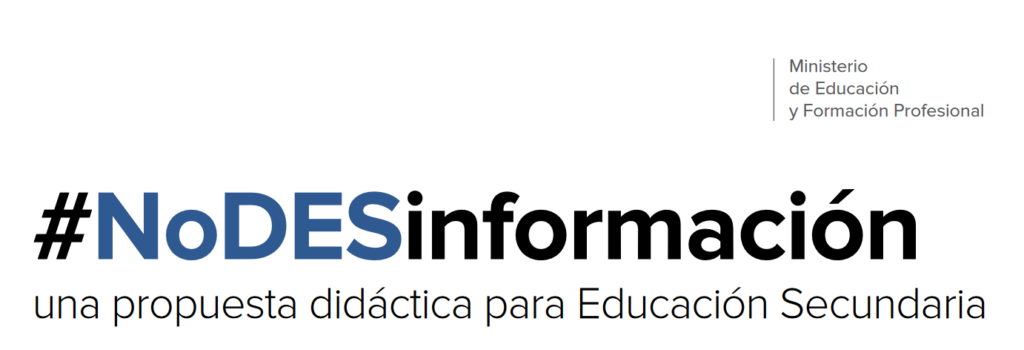
NoDESinformación. Una propuesta didáctica para Educación Secundaria
“Esta propuesta didáctica se presenta como un material de trabajo para el aula con la
finalidad de abordar la lucha contra la desinformación en general y, en particular, aquella que está relacionada con la COVID-19. El contenido que se explica en este material está dirigido a todo el alumnado de Educación Secundaria. El material didáctico que se presenta a continuación es complementado por un vídeo,
disponible en [enlace]”. (cita)
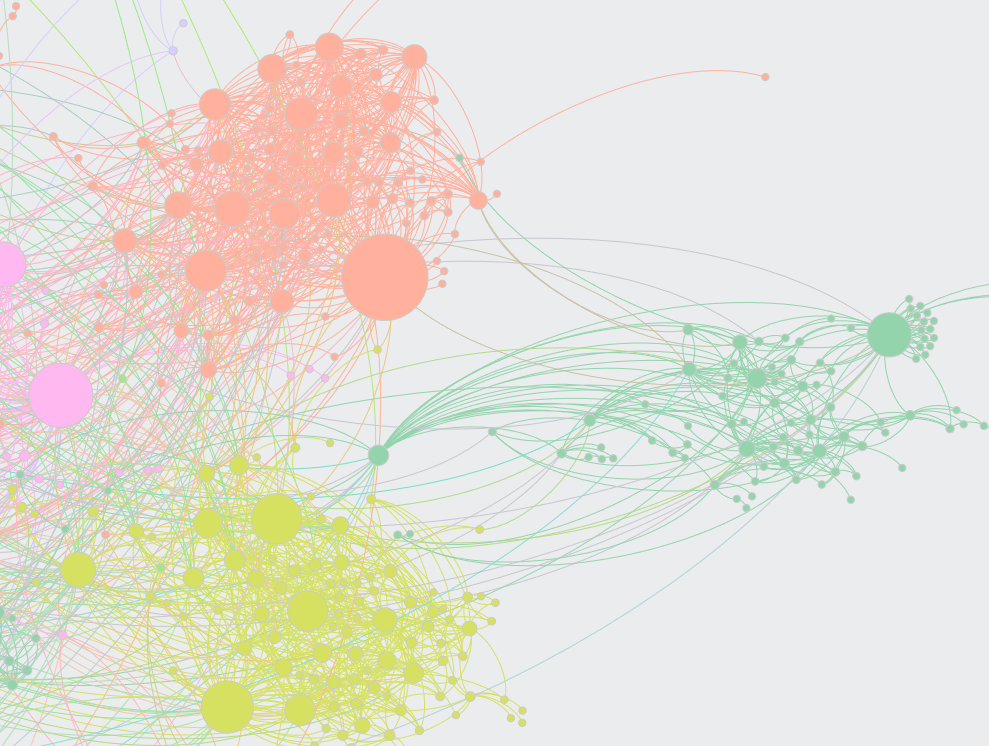
Lucha contra las campañas de desinformación en el ámbito de la seguridad nacional. Propuestas de la sociedad civil
Acceso a la publicación.
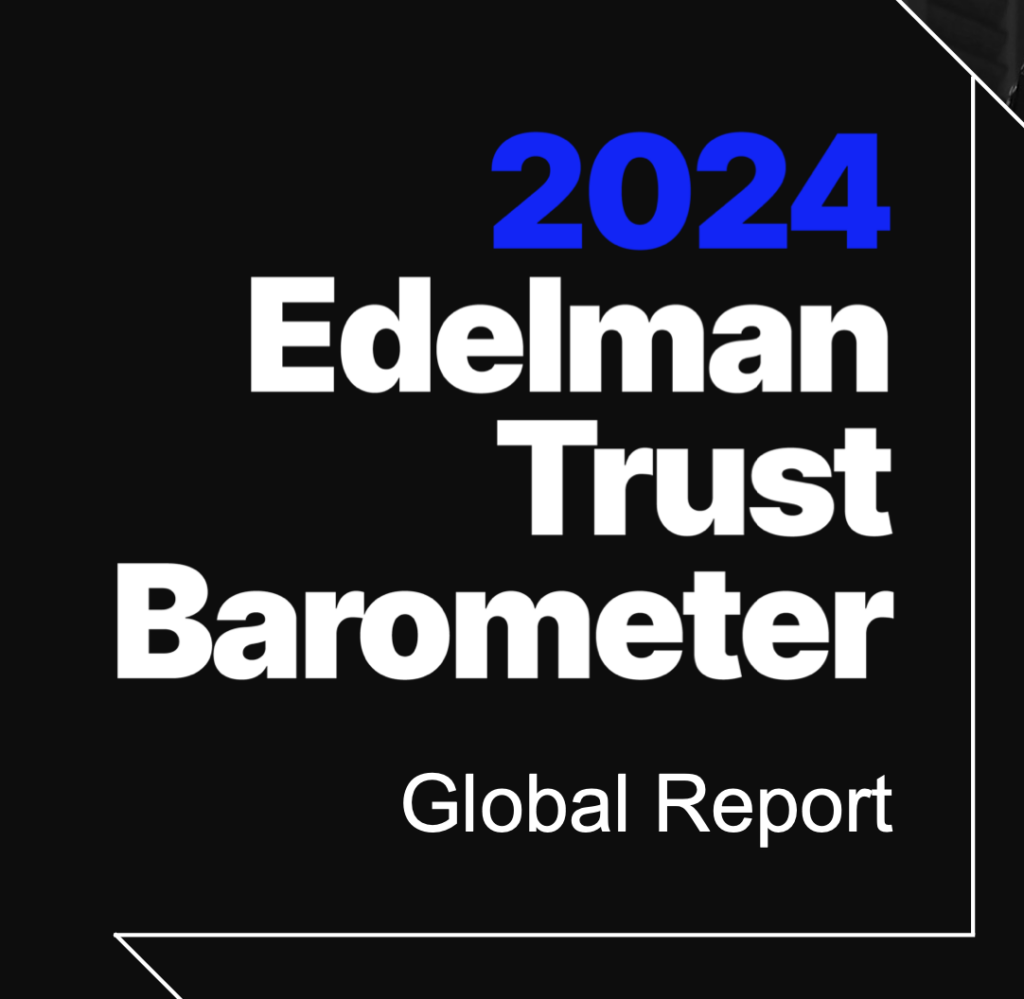
Edelman Trsut Barometer (Global Report)
“The 2024 Edelman Trust Barometer reveals a new paradox at the heart of society. Rapid innovation offers the promise of a new era of prosperity, but instead risks exacerbating trust issues, leading to further societal instability and political polarization […] In a year where half the global population can vote in new leaders, the acceptance of innovation is essential to the success of our society. While people agree that scientists are essential to the acceptance of innovation, many are concerned that politics has too much influence on science. This perception is contributing to the decline of trust in the institutions responsible for steering us through change and towards a more prosperous future”. (cita)
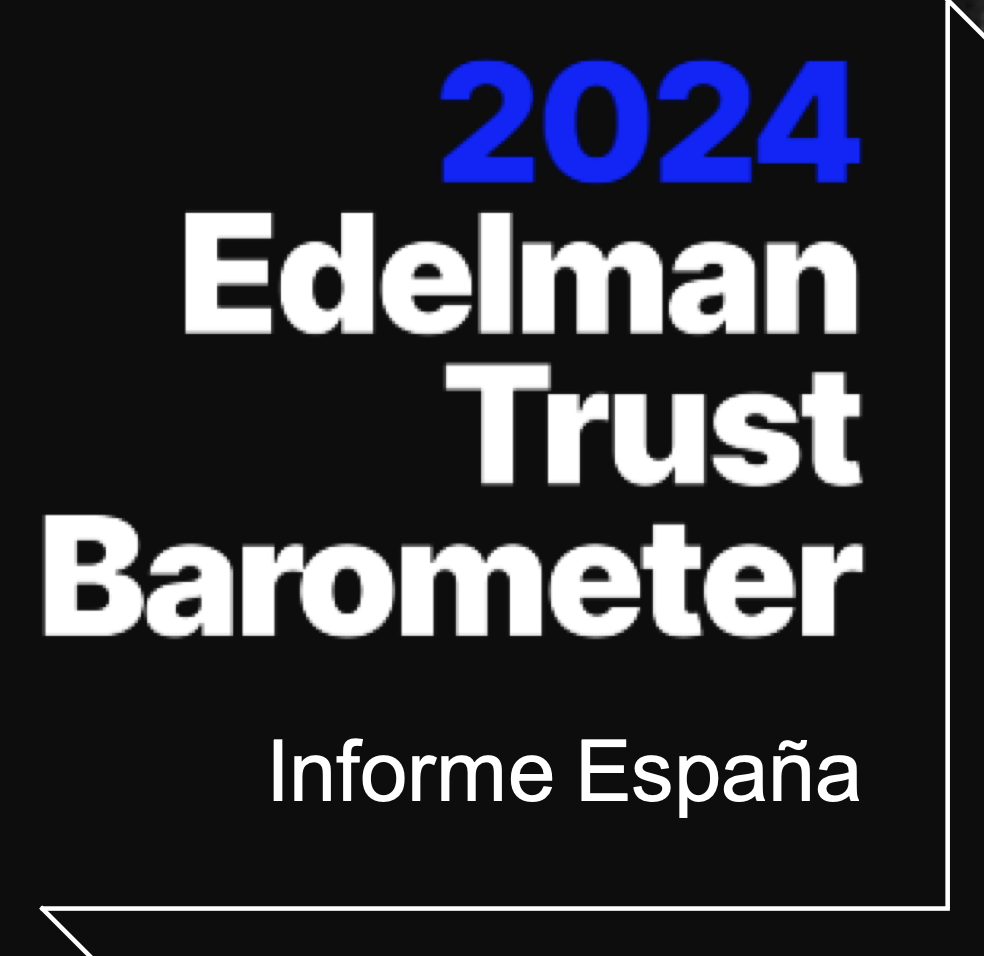
Edelman Trsut Barometer (informe España)
“En España, las empresas son la institución en la que más se confía. Además, existe un desequilibrio entre instituciones que es patente: las empresas son las únicas en ser percibidas tanto competentes como éticas […] Sin embargo, sigue persistiendo el temor a la desinformación. Seguimos buscando la verdad en la información que consumimos. Existe la impresión de que los líderes del Gobierno, empresas y periodistas están manipulando la verdad al hacer afirmaciones que saben que son falsas o exageradas”. (cita)
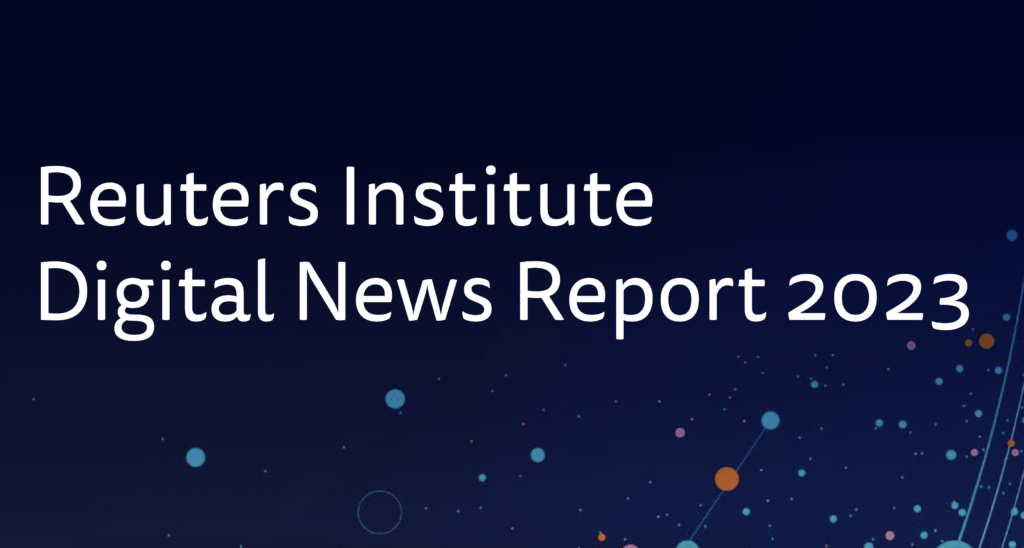
Edelman Trsut Barometer (informe España)
“This year’s report reveals new insights about digital news consumption based on a YouGov survey of over 93,000 online news consumers in 46 markets covering half of the world’s population […] The report documents how video-based content, distributed via networks such as TikTok, Instagram and YouTube are becoming more important for news, especially in parts of the Global South, while legacy platforms such as Facebook are losing influence”. (cita)